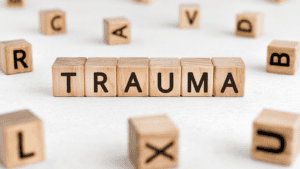
By John Mysz, LCSW –
 Every week or more in this country, we hear about a new, terribly traumatic mass shooting that shakes a community and onlookers to their core. Uvalde, Buffalo, and now Highland Park. It can feel as if these events are slowly, or very quickly, getting closer to home if they haven’t hit you already. While everyone is experiencing and processing our community’s event their own way and at their own pace, I’ll discuss here some common reactions as well as things we all can do to ease our own suffering as well as give back to the community.
Every week or more in this country, we hear about a new, terribly traumatic mass shooting that shakes a community and onlookers to their core. Uvalde, Buffalo, and now Highland Park. It can feel as if these events are slowly, or very quickly, getting closer to home if they haven’t hit you already. While everyone is experiencing and processing our community’s event their own way and at their own pace, I’ll discuss here some common reactions as well as things we all can do to ease our own suffering as well as give back to the community.
First, regarding our community’s tragedy on July 4th: My heart goes out to all those affected by this shooting. This senseless act of violence will have repercussions on our communities that are long-term and largely unknown to us. While it is fortunate the authorities were able to capture and charge the shooter, it does not change the outcomes that already occurred. As our communities grapple with what this means for the future, it is important we remain vigilant and change with this event. Everyone will change differently, but some suggestions may be to become more politically involved, become a part of local neighborhood watches, have your business host fundraisers or sponsor some. As our country has with countless others, we cannot let this tragedy fade away with no meaningful change.
As I said, everyone deals with events in their own way and at their own pace. Some people will go back to normal pretty quickly, blocking out the tragedy as their way of coping. Others might shut themselves inside, fearful of leaving the home or begin engaging in obsessive or compulsive activities to feel they have some semblance of control. Finally, many will feel a more constant state of anxiety, finding themselves somewhere in between the two. They may be more fearful of going into public places, more anxious that their friends and family are in danger at any given moment, and tighten the leash a bit on their children or loved ones. These individuals will also feel the need to try and return to something normal, like going to work and engaging in any other daily routine they normally have but feel disingenuous doing so.
Unfortunately, all the above reactions and many more (while perfectly normal) are likely to increase any inner turmoil, especially if not being helped by a mental health professional. See below for a few symptoms that are common in trauma survivors and others who experience any form of community violence.

There are immense educational resources available out there to understand your own reactions and others’ to community violence. I’ll include those below. For now, I’ll provide you with some tips and suggestions for what you can do and what resources are available in your area today and over the next few weeks.
- So, for starters, it’s important to continue engaging in some sort of routine, especially if your job does not offer any sort of leave or you do not have PTO stored up.
- Acknowledge that you’ve just gone through a very difficult time and attempt to give yourself some slack – reel back your perfectionism a bit and treat yourself as you’d treat your friend or family member who is struggling right now.
- Use your support system, including your friends, family, doctors, and coworkers. Talk about the event when you feel safe and reach out to help when and how you’re able.
- Remember, you need to take care of your necessities, regardless of the headspace you’re in – make sure you eat, drink water, sleep, and get some exercise.
- Practice mindfulness, seek out a therapist, and limit your exposure to news about the events. This includes news outlets, radio, social media, and talking with friends. Limiting your intake of this does not make you ignorant or apathetic. At this point the vast majority of us know what we need to know; the gory details are not helpful in treating your trauma.
- If you are able, attempt to give back in some way: Check-in on your friends, families, and neighbors, give to donations and fundraisers, attend vigils, give blood, and volunteer your professional services to those in need.
Please see below for additional resources. The first link is a Google Doc created by Highland Park and is an immense list of resources ranging from GoFundMe and community events like vigils to mental health resources and education (including how to talk to your children about the event). The others are other articles regarding community violence and a list of local trauma informed therapists.
Take care,
John Mysz, LCSW, CCFP
Coping After a Traumatic Mass Shooting
Local Trauma Informed Therapists
Resources for Victims and Survivors of Gun Violence
The Weeks After Community Violence
Recent Posts
About Us
Veterinary Specialty Center is a privately-owned, 24/7 emergency and specialty animal hospital located in Bannockburn, IL. Since 1976, their team of board-certified specialists has delivered advanced, compassionate care, leading the way with innovative treatments and a collaborative approach.
